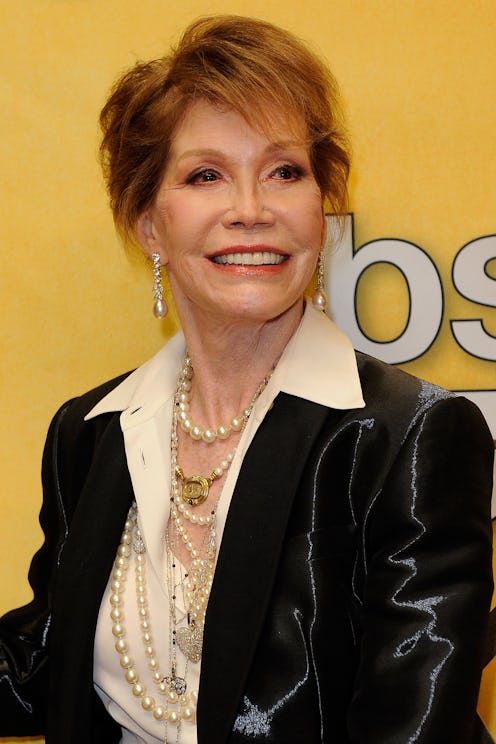
On the surface, Mary Tyler Moore's infectious smile and on-screen persona appeared to be without flaw, but sadly, Moore's life was impacted by years of alcoholism and tragedy. The actor, who died on Wednesday, Jan. 25, at the age of 80, was deemed by some to be "America's sweetheart" for her critically acclaimed portrayal of Mary Richards on The Mary Tyler Moore Show. However, life would prove to be much different for the star behind the scenes, as she attempted to conquer a tough battle with alcoholism. Her honesty about her struggles, as well as her recovery efforts, show just how courageous she truly was.
Moore opened up about her struggles with alcoholism in 1995, recalling the account of her downward spiral in her tell-all autobiography, After All. In candid excerpts from the memoir, shared by People magazine, Moore revealed that her troubles with alcohol ran deep through her bloodline. Both her mother and sister, who died from a toxic combination of alcohol and prescription drugs at the age of 21, had been afflicted by the disease of addiction, as well as her only child, Richard Meeker Jr., who reportedly faced his own battles with substance abuse, before accidentally shooting himself at age 24.
In the book, Moore detailed her issues with drinking and revealed that they began as an attempt to save her marriage to Grant Tinker, while she shared the shocking danger that accompanied her intoxication — including playing "Russian roulette" with her car. As per People's excerpts, Moore wrote,
In 1979, Grant and I had begun hesitantly to talk about the great silence that had fallen on us. We always made these feeble attempts at self-counseling during the so called happy hour, the only time we had courage enough to broach the subject.
Her separation from Tinker, however, did not prove to resolve the alcoholism that she explained became increasingly worse when she was single and trying to numb the pain on her own. She also wrote,
Not surprisingly, during that summer the distillation of my growing alcoholism took place. Even though I was accomplishing things by myself, it was all so uncomfortable that I anesthetized myself at the end of the day. Nothing was so tough I couldn’t get through it until 5:30 or 6. Then the effects of vodka on the rocks made it all go away.
In a 2005 interview with Larry King Live, the actor and diabetes activist revealed that she chose to quit drinking on her own and decided to admit herself into the Betty Ford Center to treat the "debilitating" ailment. She told King,
"And, you know, with alcoholism, you tend to drink because you're angry, or you drink because you're sad now, or you drink because you are just so happy you want to celebrate. But unfortunately, it's debilitating."
It would appear that Moore managed to stay sober following her rehab stint and was able to turn her life around for the better. Her openness on the subject was eye-opening and brave. In sharing her story, hopefully she can help others face and deal with their own struggles.
Rest in peace, Moore. Thank you for your undeniable strength and brave honesty. You will surely be missed.